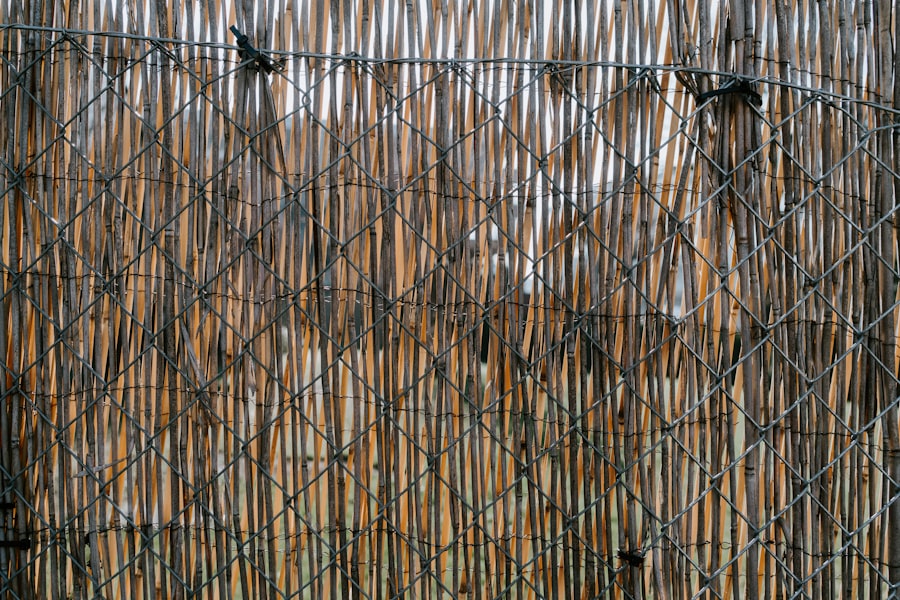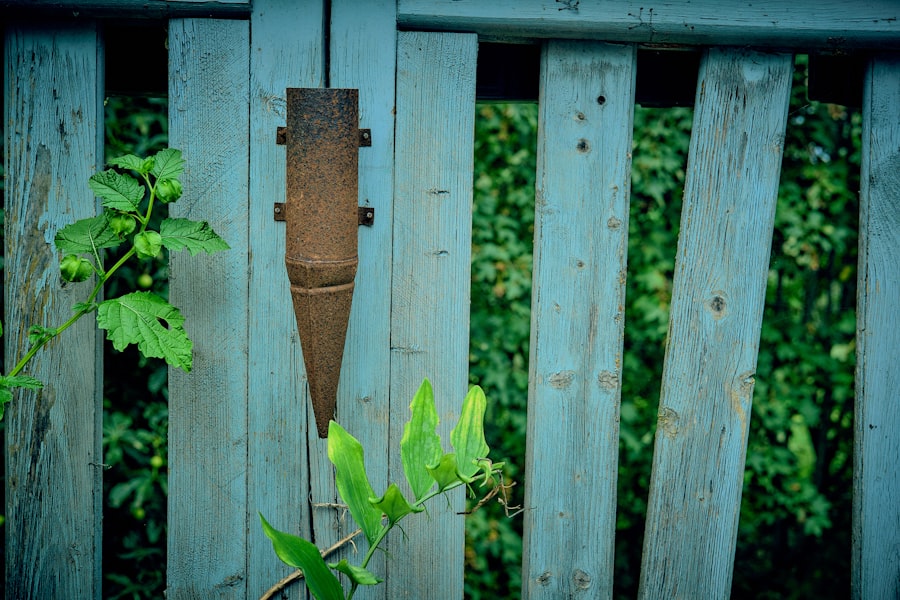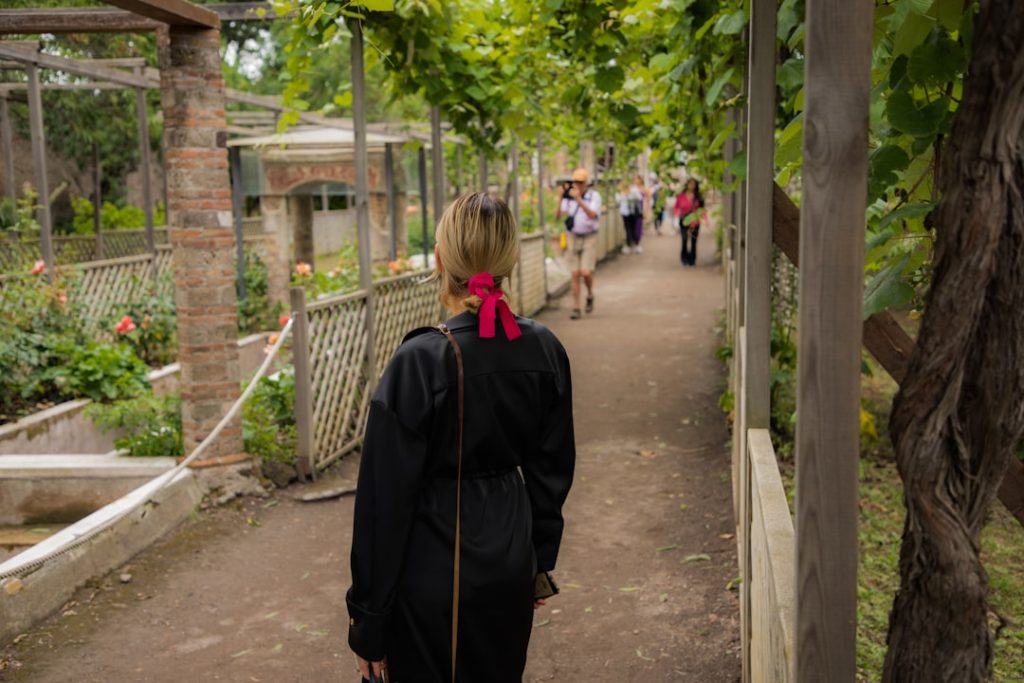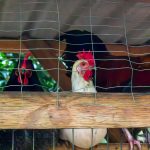Chickens are naturally curious and inquisitive animals with an instinctual drive to scratch and forage for food. This behavior is essential for their well-being, as it allows them to find insects, seeds, and other small organisms that comprise a significant portion of their diet. However, when chickens are allowed to roam freely in gardens or flower beds, their scratching and pecking can quickly damage delicate plants and flowers, causing frustration for gardeners and homeowners.
Understanding the natural behavior of chickens is crucial in developing effective solutions to prevent them from damaging flower beds. Chickens are social animals that tend to follow the lead of dominant flock members. If one chicken begins scratching and foraging in a particular area, others are likely to follow.
Additionally, chickens possess a strong sense of curiosity and will investigate new or interesting objects in their environment. This curiosity can lead them to explore flower beds and gardens, potentially causing damage in the process. By understanding these behaviors, gardeners can implement strategies to deter chickens from accessing and damaging their flower beds.
Table of Contents
- 1 Creating physical barriers
- 2 Using natural deterrents
- 3 Implementing visual deterrents
- 4 Providing alternative areas for scratching and foraging
- 5 Consistently monitoring and maintaining the flower bed
- 6 Seeking professional advice if necessary
- 7 FAQs
- 7.1 What are some natural ways to keep chickens out of my flower bed?
- 7.2 Are there any commercial products available to keep chickens out of my flower bed?
- 7.3 Is it safe to use chicken wire or fencing to keep chickens out of my flower bed?
- 7.4 What are some chicken-resistant plants that I can use in my flower bed?
- 7.5 Are there any legal restrictions on keeping chickens out of my flower bed?
Key Takeaways
- Chickens are naturally curious and will scratch and forage in flower beds
- Physical barriers such as fences or netting can prevent chickens from accessing flower beds
- Natural deterrents like citrus peels or coffee grounds can discourage chickens from entering flower beds
- Visual deterrents like scarecrows or reflective objects can also deter chickens
- Providing alternative areas for scratching and foraging can redirect chickens away from flower beds
- Consistent monitoring and maintenance of the flower bed is necessary to keep chickens away
- Seek professional advice if chicken behavior becomes a persistent issue
Creating physical barriers
Installing Physical Barriers
One effective way to prevent chickens from damaging flower beds is to create physical barriers that restrict their access. This can be achieved by installing fencing around the perimeter of the flower bed or using chicken wire to cover the soil. Fencing should be tall enough to prevent chickens from flying over it and sturdy enough to withstand their attempts to scratch or peck at it.
Using Chicken Wire and Raised Beds
Chicken wire can be laid directly on the soil and secured with stakes or rocks to prevent chickens from accessing the area. Another option is to use raised beds or containers to grow flowers and plants. Raised beds elevate the soil, making it more difficult for chickens to access and scratch at the plants.
Alternative Solutions
Containers can be placed on elevated surfaces or hung from hooks to keep them out of reach of chickens. By creating physical barriers, gardeners can effectively protect their flower beds from the destructive behavior of chickens.
Using natural deterrents

In addition to physical barriers, natural deterrents can be used to discourage chickens from entering flower beds. Chickens have a strong sense of smell and are sensitive to certain odors, making them less likely to approach areas with strong scents. For example, scattering citrus peels, garlic cloves, or coffee grounds around the perimeter of the flower bed can deter chickens from entering the area.
These natural deterrents emit strong odors that are unpleasant to chickens, causing them to avoid the flower bed altogether. Another natural deterrent is the use of predator urine or feathers. Chickens are naturally wary of predators, and the scent of predator urine can signal danger and cause them to stay away from an area.
Similarly, hanging feathers or other objects that resemble predatory birds can create a sense of unease for chickens, deterring them from entering the flower bed. By using natural deterrents, gardeners can effectively protect their flower beds without causing harm to the chickens.
Implementing visual deterrents
Visual deterrents can also be effective in preventing chickens from damaging flower beds. Chickens are sensitive to movement and will often be startled by sudden or unexpected visual stimuli. By placing reflective objects such as CDs or aluminum foil around the flower bed, gardeners can create flashes of light that deter chickens from approaching the area.
Additionally, hanging scarecrows or other objects that move in the wind can create a sense of unease for chickens, causing them to stay away from the flower bed. Another visual deterrent is the use of barriers that create a visual barrier between the chickens and the flower bed. This can be achieved by using netting or mesh that is suspended above the flower bed, creating a barrier that prevents chickens from accessing the area.
By implementing visual deterrents, gardeners can effectively protect their flower beds without causing harm to the chickens.
Providing alternative areas for scratching and foraging
One way to prevent chickens from damaging flower beds is to provide them with alternative areas for scratching and foraging. By creating designated areas where chickens can engage in their natural behaviors, gardeners can redirect their attention away from delicate plants and flowers. This can be achieved by designating a specific area of the yard for chickens to scratch and forage, such as a designated patch of soil or a compost pile.
By providing alternative areas for chickens to engage in their natural behaviors, gardeners can effectively protect their flower beds from damage. Another option is to provide chickens with enrichment activities that mimic scratching and foraging behaviors. This can include scattering scratch grains or mealworms in designated areas of the yard, providing toys or objects for chickens to peck at, or creating a dust bathing area where they can engage in natural grooming behaviors.
By providing alternative areas for scratching and foraging, gardeners can redirect the attention of chickens away from flower beds and towards more suitable areas.
Consistently monitoring and maintaining the flower bed

Regular Inspection and Maintenance
By regularly inspecting the area for signs of scratching or pecking, gardeners can quickly identify any potential issues and take action to prevent further damage. This may involve repairing any physical barriers that have been damaged or reinforcing natural deterrents that have become less effective over time.
Promoting Healthy Plant Growth
Maintaining the flower bed by regularly watering, fertilizing, and pruning plants can help promote healthy growth and resilience against potential damage caused by chickens.
Removing Attractants and Securing the Area
Another important aspect of maintaining the flower bed is keeping it free of any potential food sources that may attract chickens. This includes removing fallen fruits or seeds, covering compost piles, and securing garbage bins to prevent access by chickens.
By consistently monitoring and maintaining the flower bed, gardeners can effectively prevent damage caused by chickens and promote healthy growth of plants and flowers.
Seeking professional advice if necessary
If efforts to prevent damage caused by chickens are not successful, it may be necessary to seek professional advice from a veterinarian or animal behaviorist. These professionals can provide guidance on effective strategies for deterring chickens from flower beds while ensuring their well-being and welfare. They may also be able to offer insights into the behavior of chickens and provide tailored solutions based on individual circumstances.
In some cases, it may be necessary to consult with a professional pest control service to address issues related to chicken behavior. These experts can provide guidance on humane methods for deterring chickens from flower beds while ensuring their safety and well-being. By seeking professional advice if necessary, gardeners can effectively address issues related to chicken behavior and protect their flower beds from damage.
In conclusion, understanding the behavior of chickens is crucial in finding effective solutions to prevent them from damaging flower beds. By creating physical barriers, using natural deterrents, implementing visual deterrents, providing alternative areas for scratching and foraging, consistently monitoring and maintaining the flower bed, and seeking professional advice if necessary, gardeners can effectively protect their flower beds from damage caused by chickens while ensuring their well-being and welfare.
If you’re looking for more tips on keeping chickens out of your flower bed, you might want to check out this article on how to build a chicken coop trampoline. This innovative solution not only keeps your chickens entertained and active, but it also helps to prevent them from wandering into your garden and damaging your plants.
FAQs
What are some natural ways to keep chickens out of my flower bed?
Some natural ways to keep chickens out of your flower bed include using chicken wire or fencing to create a barrier, planting chicken-resistant plants, and using natural deterrents such as citrus peels or coffee grounds.
Are there any commercial products available to keep chickens out of my flower bed?
Yes, there are commercial products such as chicken repellent sprays or granules that can be used to deter chickens from entering your flower bed.
Is it safe to use chicken wire or fencing to keep chickens out of my flower bed?
Yes, using chicken wire or fencing is a safe and effective way to keep chickens out of your flower bed. Just make sure the fencing is secure and does not pose any safety hazards to the chickens.
What are some chicken-resistant plants that I can use in my flower bed?
Some chicken-resistant plants that you can use in your flower bed include lavender, marigolds, rosemary, and daffodils. These plants have strong scents or tastes that chickens tend to avoid.
Are there any legal restrictions on keeping chickens out of my flower bed?
It is important to check with local ordinances and regulations regarding the keeping of chickens and the use of deterrents in your area. Some areas may have specific rules about keeping chickens and using certain products in outdoor spaces.
Meet Walter, the feathered-friend fanatic of Florida! Nestled in the sunshine state, Walter struts through life with his feathered companions, clucking his way to happiness. With a coop that’s fancier than a five-star hotel, he’s the Don Juan of the chicken world. When he’s not teaching his hens to do the cha-cha, you’ll find him in a heated debate with his prized rooster, Sir Clucks-a-Lot. Walter’s poultry passion is no yolk; he’s the sunny-side-up guy you never knew you needed in your flock of friends!







